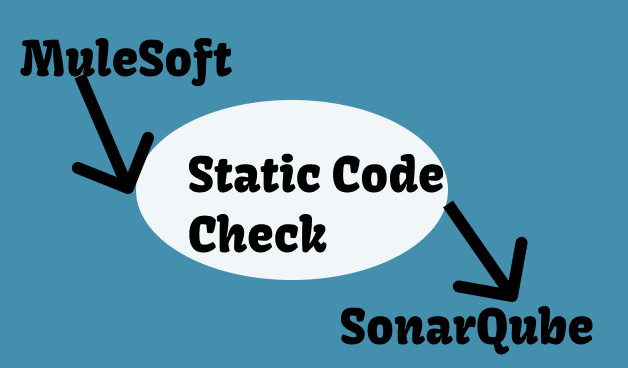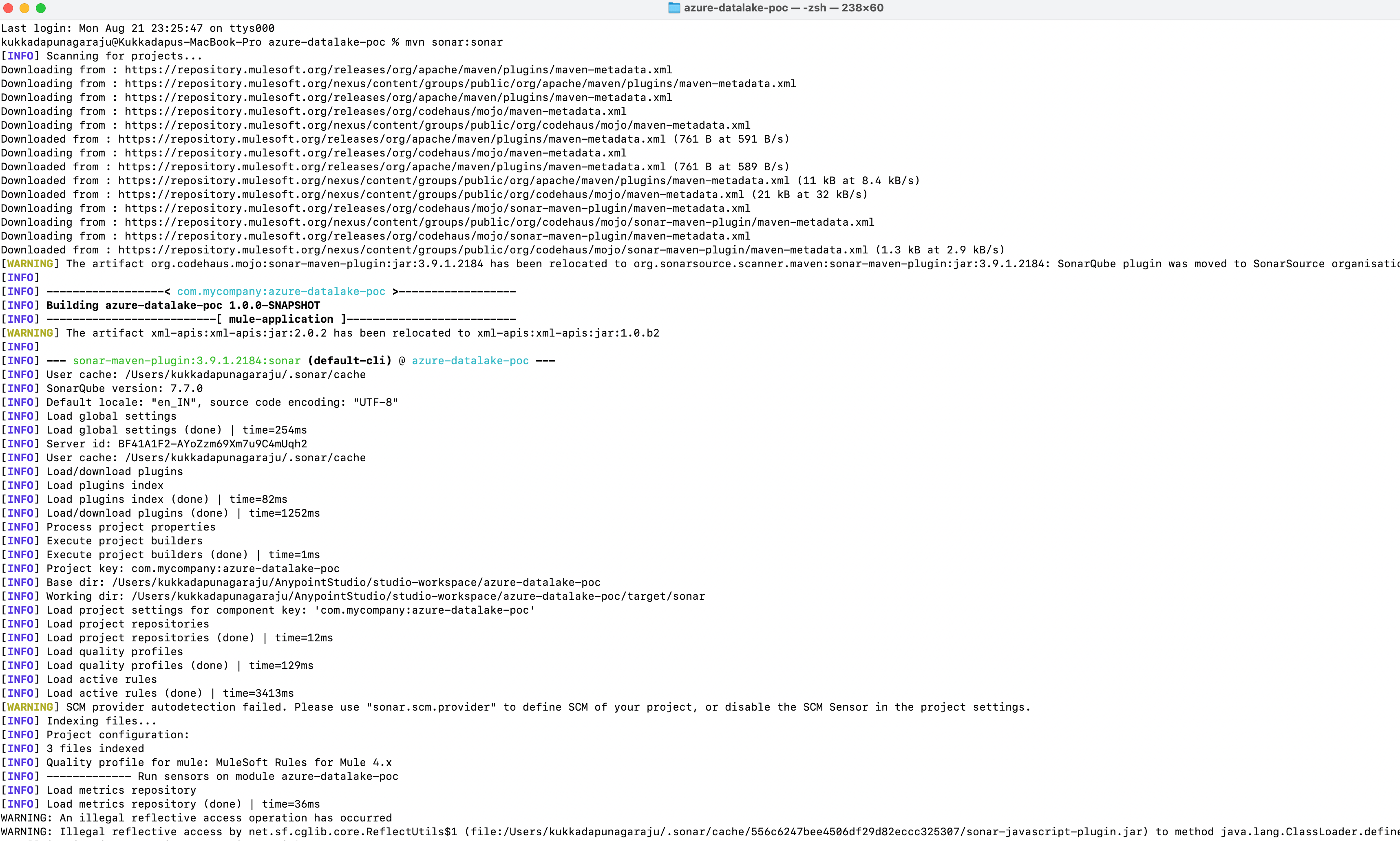Static Code Check Using Mule Sonar Plugin
 NagaRaju Kukkadapu
NagaRaju Kukkadapu1 min read

Prerequisites:
Docker
SonarQube
Anypoint Studio
Installation of Docker:
Installation of mule sonar plugin:
https://github.com/mulesoft-catalyst/mule-sonarqube-plugin#server
- On successful installation of docker run the below command to install mule sonar plugin
docker pull fperezpa/mulesonarqube:7.7.3
- On successful installation of sonar run the following command to start the sonar.
docker run -d --name sonarqube -p 9000:9000 -p 9092:9092 fperezpa/mulesonarqube:7.7.3

- On Docker, screen sonar status can be seen

On a Successful run and once the Sonar is Up.
Call http://localhost:9000 on the browser.
Pass credentials below
username: admin
Password: admin
Static Code Check:
Update the properties with
<sonar.sources>src/</sonar.sources>
- Update profiles to connect with sonar.
<profiles>
<profile>
<id>sonar</id>
<activation>
<activeByDefault>true</activeByDefault>
</activation>
<properties>
<sonar.host.url>
http://localhost:9000
</sonar.host.url>
</properties>
</profile>
</profiles>

- Run the following command at project exists where pom.xml exists.
mvn sonar:sonar

- On successful build at http://lolcahost:9000/projects, you can see the project got created with static code check.



0
Subscribe to my newsletter
Read articles from NagaRaju Kukkadapu directly inside your inbox. Subscribe to the newsletter, and don't miss out.
Written by

NagaRaju Kukkadapu
NagaRaju Kukkadapu
I'm an Integration developer with extensive knowledge on designing, developing & architecture integration solutions using MuleSoft,Workato,Celigo,Talend,Spring,Java